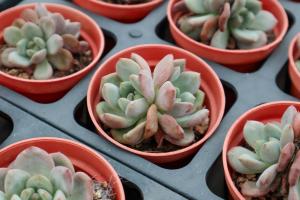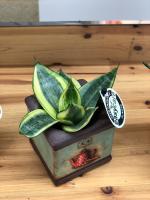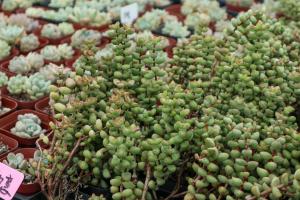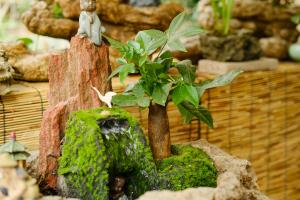Is Polypropylene Plastic Pots Good for Plants?
Polypropylene plastic pots are popular among gardeners and plant enthusiasts due to their cost-effectiveness, durability, and lightweight. However, the question remains, is polypropylene plastic pots good for plants? In this article, we will explore the advantages and disadvantages of using polypropylene plastic pots for your beloved plants.
Advantages of Using Polypropylene Plastic Pots
One of the major advantages of using polypropylene plastic pots for plants is their cost-effectiveness. Polypropylene plastic pots are significantly cheaper than other types of plant containers such as terracotta or ceramic. As a result, gardeners can purchase more pots with the same budget and expand their plant collection.
Polypropylene plastic pots are also known for their durability. Unlike other types of plant containers, polypropylene plastic pots do not crack or break easily. They are resistant to extreme temperatures, moisture, and sunlight. As a result, gardeners can use them for multiple planting seasons without having to replace them frequently.
Another advantage of using polypropylene plastic pots is their lightweight. They are easy to transport and move around, making them ideal for gardeners who frequently change their plant arrangements or move their plants indoors during the winter months.
Disadvantages of Using Polypropylene Plastic Pots
Despite their advantages, there are also some disadvantages of using polypropylene plastic pots for plants. One of the main concerns is their impact on the environment. Polypropylene plastic pots are not biodegradable and can take hundreds of years to decompose. They also contribute to the increasing issue of plastic pollution in oceans and landfills.
In addition, polypropylene plastic pots have a relatively short lifespan compared to other types of containers. While they are durable, they eventually become brittle and lose their structural integrity. This can lead to the pots cracking or breaking, which can harm the plants inside or cause them to topple over.
Polypropylene plastic pots also have a tendency to retain moisture, which can lead to root rot and other fungal or bacterial diseases in plants. Gardeners need to be careful not to overwater their plants or to provide adequate drainage and aeration.
Conclusion
Overall, polypropylene plastic pots are good for plants if used correctly and with proper care. They are cost-effective, durable, and lightweight, making them a popular choice among gardeners. However, they also have their disadvantages, including their impact on the environment, short lifespan, and potential moisture retention issues. Gardeners need to weigh the pros and cons and make an informed decision on whether to use polypropylene plastic pots for their plants.

 how many times do yo...
how many times do yo... how many planted tre...
how many planted tre... how many pine trees ...
how many pine trees ... how many pecan trees...
how many pecan trees... how many plants comp...
how many plants comp... how many plants can ...
how many plants can ... how many plants and ...
how many plants and ... how many pepper plan...
how many pepper plan...
































